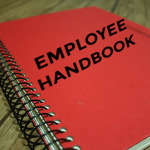Drugs in the Workplace: Tread Lightly, Navigate Carefully
 FisherBroyles, LLP has a warning for employers dealing with an employee who is doing — or is suspected of doing — illegal drugs: Situations of this kind are fraught with potential for large legal fees, company embarrassment, and major diversion of management time if you become involved in formal proceedings — even if you eventually win.
FisherBroyles, LLP has a warning for employers dealing with an employee who is doing — or is suspected of doing — illegal drugs: Situations of this kind are fraught with potential for large legal fees, company embarrassment, and major diversion of management time if you become involved in formal proceedings — even if you eventually win.
Drugs permeate our society. It’s on the news, in social media, and all over movies and television. It may also be in your workplace when you discover that your awesome SVP Frank Fantastic’s belief-suspending prior year’s sales record might be due to — or despite — a little cocaine habit combined with his daughter’s ADHD meds.
Some questions you want to consider — do you know this hotshot is doing illegal drugs or abusing alcohol or prescription drugs, or do you just suspect? Is Frank’s employment terminable at will or only for cause if he is a party to an employment contract? Is a substance addiction a “disability” under the Americans with Disabilities Act?
While the answers to such questions depend on the particular facts in each situation, one thing we can tell you is tread lightly, navigate carefully. You want to minimize involvement in such proceedings if at all possible.
The firm offers advice on how to proceed: maintain a clear anti-drug policy, manage the situation with care, review employment agreement, remember that the ada protects recovering addicts, and be proactive in future employment agreements. The article expands on each of those points.
 A fundamental principle of contract law is that a written contract is an agreement in writing that serves as proof of the parties’ obligations, writes
A fundamental principle of contract law is that a written contract is an agreement in writing that serves as proof of the parties’ obligations, writes  BanbooHR will present a
BanbooHR will present a  A New Jersey court recently used the so-called contract “disclaimer” language in an employer’s handbook to preclude the employer from enforcing a mandatory arbitration program contained in that same handbook, reports
A New Jersey court recently used the so-called contract “disclaimer” language in an employer’s handbook to preclude the employer from enforcing a mandatory arbitration program contained in that same handbook, reports  There are few reasons a court will treat a contract it as if it never existed at all, and those limited reasons center almost exclusively on a widely pervasive misdeed that is difficult to detect, such as resume fraud, writes
There are few reasons a court will treat a contract it as if it never existed at all, and those limited reasons center almost exclusively on a widely pervasive misdeed that is difficult to detect, such as resume fraud, writes